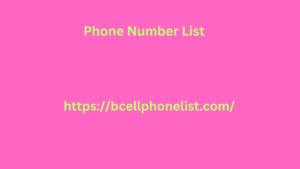20 MAR 2020 · INTERNETCOMMENT
Have you started working remotely? The declaration of the new coronavirus pandemic and quarantine situations are forcing companies to change their normal model of in-person work to teleworking. This change should take into account several cybersecurity precautions so as not to put the business at risk.
WhiteHat , a cybersecurity company, today released some recommendations that companies should follow in order to reinforce security in this new paradigm of social distancing. Learn how to ensure the protection of remote work.
Remote work? Learn how to protect your company and your business
If for large organizations this is a challenge that can be overcome with less difficulty, considering that they already have human and technical resources, for small and medium-sized companies the scenario can become quite complex and increase cyber risk.
The process of decentralizing human resources for remote work may involve an employee’s own equipment or portable equipment provided by the organization.
It is important that employees continue to have acces Belarus Mobile Number List s to all of the organization’s technological resources so that they can perform their tasks with maximum productivity.
Remote work: Endpoint protection, firewall, UTM
In this scenario, it is essential to consider that tAlgeria Phone Number List se devices are now part of the organization’s infrastructure and must acquire the same level of endpoint protection as the remaining local equipment, mainly because they are outside the usual perimeter protection through solutions such as firewall or UTM.
In this way, these ‘new’ endpoints will be covered by the implemented security policies and establish secure remote connections (e.g. VPN, connections to remote work environments) to the organization, protecting business data that may be collected, processed and stored on these new devices.
Remote work? Learn how to protect your company and your business
Therefore, it is essential that endpoint protection acts on several layers, namely against all forms of malware and ransomware, network protection (e.g. personal firewall), email protection/antispam, control of external devices (e.g. storage, network interfaces, 3G/4G modems) and web content filtering. It is equally important to ensure continuous monitoring/management of security policies through a centralized tool on-premises (locally) or in the cloud.
2FA technology will reinforce authentication for remote connection services (e.g. VPN, RDP) and applications used in everyday business (e.g. MS SharePoint, MS Exchange/OWA, CMS, web applications, among others).
With regard to encryption, this technology guarantees total protection against unauthorized access to data in the event of intrusion or theft/physical loss of the device.
DLP solutions add an additional layer of data security to prevent data leakage through endpoints. This is especially important in the event that a remote employee accidentally or intentionally causes a leak of confidential business data.

